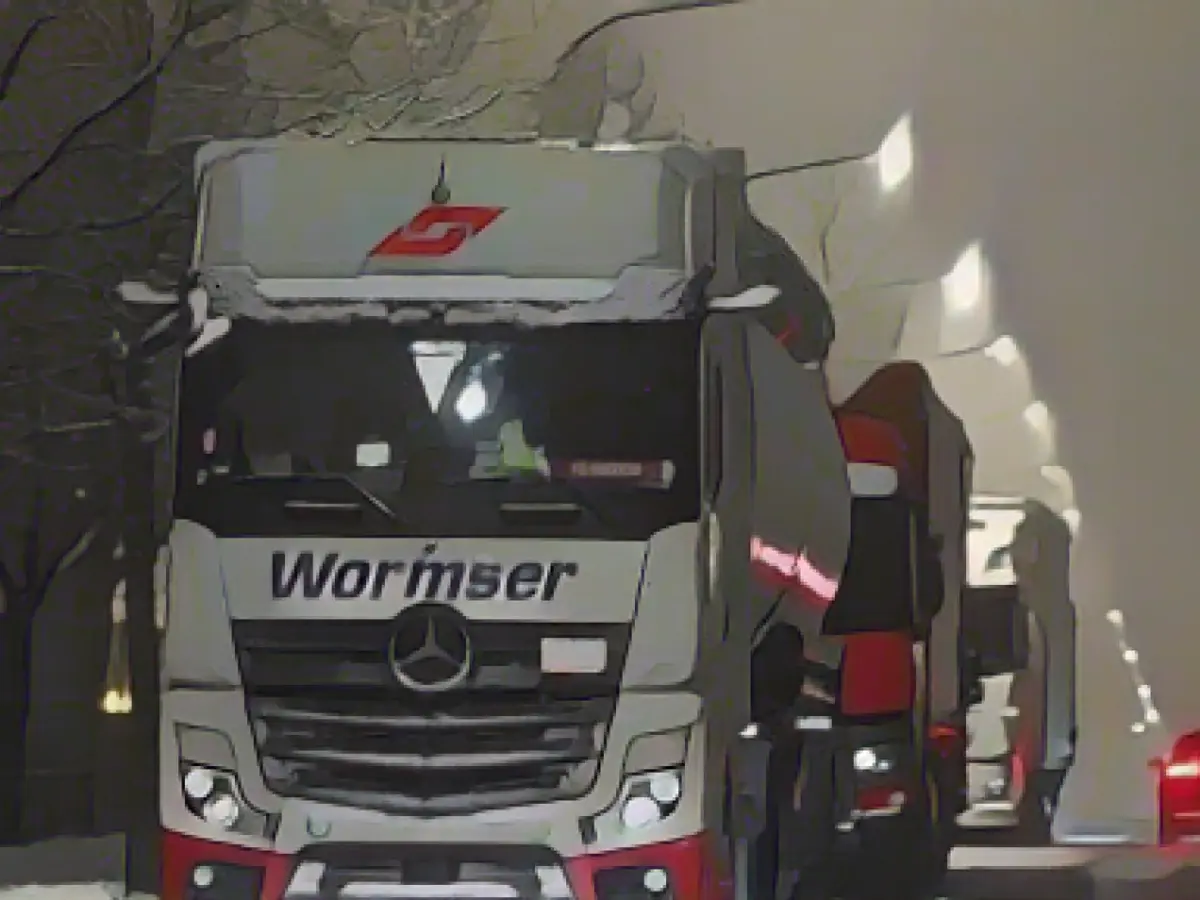Traffic - Higher truck toll increases transportation costs
The increase in the truck toll is having a significant impact on transport costs for Thuringian hauliers. "On average, prices will increase by five to ten percent," says Christian Hildebrand, Head of Long-Distance Transport at B&H Spedition in Hörsel (Gotha district). Other logistics companies in the Free State are reporting similar developments with regard to the increase in tolls that came into force on December 1. The Thuringian food banks are also dealing with the issue - but it will not become acute for them until mid-2024.
How the increase will actually work
Since December 1, the truck toll has included a CO2 surcharge of 200 euros per kilogram. The federal government expects the new CO2 component to generate billions in additional revenue, which will also flow to the railways for the first time. For the price per kilometer, this means almost a doubling, despite the modern vehicle fleet, as the logistics company Zeitfracht in Erfurt reports: from 19 to almost 35 cents per kilometer. According to the company, it is difficult to say in general terms what effect this will ultimately have on transport costs.
Chris Sperber, Managing Director of the Saalfeld-based freight forwarder Optimax, is more specific: the freight price has increased by an average of eight percent within Germany and ten percent for journeys to Austria. Gera-based furniture forwarder René Starke also expects increases of around five percent. There are also additional costs. He will soon have to replace the toll devices for his 60 trucks. Cost point: 2500 to 3000 euros per device.
What this means for end consumers
In its draft bill on the toll increase, the German government had assumed that the toll increase would make products only 0.1 percent more expensive for end consumers. This calculation has been met with incomprehension in the industry. "Unrealistic", "naïve", "nonsense", are the words of the Thuringian hauliers. Journeys to return deposits, for example, are not taken into account. Some also express the fear that producers could use the toll increase as an argument to raise end customer prices even more.
Ultimately, however, it depends on the product and the truck itself, says Martin Kammer, Managing Director of the Thuringia State Association of the Transport Industry. If a large, modern truck transports around 200,000 yoghurt pots over 800 kilometers of toll road, the cost per yoghurt pot increases by 0.006 cents, he calculates. However, if the same truck transported two garden sheds, for example, the toll would cost 63.20 euros each. The logistics companies would have to pass these increases on one-to-one. For furniture removal company Starke, for example, this means that the cost of a move will increase by five percent.
The state of e-mobility
Emission-free trucks are exempt from tolls until the end of 2025. The federal government also wants to use this to incentivize more electric trucks on the roads. However, this is currently not a solution for Thuringian entrepreneurs. "I don't even have enough parking spaces for my long-distance drivers. Where are they supposed to charge?" complains Hildebrand from B&H Spedition. The ranges are too short and there is no charging infrastructure.
There is also the financial aspect, as a spokesperson from Zeitfracht explains: "In some cases, comparable e-trucks are over 100 percent more expensive to purchase than conventional combustion trucks. The running costs do not justify the higher purchase price. There is still no competitive mass-produced electric truck that meets today's requirements.
What else will be added in mid-2024
The truck toll currently only applies to trucks weighing 7.5 tons or more. But from July 2024, vans over 3.5 tons will also be subject to tolls. This is also causing headaches for the Thuringian food banks, for example. Many food banks have vans of this size, said Beate Weber-Kehr, chairwoman of the state association of food banks. However, there is still a lack of knowledge about the specific impact of the toll.
Postal service providers and removal companies also often have vans of this size and would be affected by the introduction, says Kammer from the Association of the Transport Industry. He knows of a removal company whose toll costs will increase from 30,000 to 150,000 euros per year. "That's quite a house number."
Draft law
Lesen Sie auch:
- Kick-off for mountain parades: "positive stress" for associations
- Ballack: Neuer in goal, Kimmich at right-back
- Two people killed in accident on A555
- Major landlords demand reform of tenancy law
- Mainz mayor: Federal government will not contribute to Gutenberg Museum
- Construction machinery worth 50,000 euros stolen
- Riedbahn renovation: Buses run from Mannheim to the airport
- The Federal Government believes that the new CO2 component in the truck toll will generate billions in additional revenue for the railways, which will be used to support the transportation industry in Germany and beyond.
- Christian Hildebrand, Head of Long-Distance Transport at B&H Spedition in Hörsel (a district of Gotha), has expressed concerns over the impact of the increased truck toll on transportation costs, projecting an average price increase of 5-10%.
- The transportation industry in Thuringia is not the only one affected; logistics companies in Austria are also reporting significant increases in freight prices following the implementation of the truck toll.
- Thuringian food banks are not currently affected by the toll increase, but they are monitoring the situation closely since they anticipate experiencing its effects by mid-2024.
- The new truck toll includes a CO2 surcharge of 200 euros per kilogram, which results in a significant hike in prices per kilometer, affecting both domestic and international industries in the transportation sector.
- Freight forwarder Optimax, based in Saalfeld, has reported an average freight price increase of 8% within Germany and 10% for journeys to Austria due to the truck toll.
Source: www.stern.de








